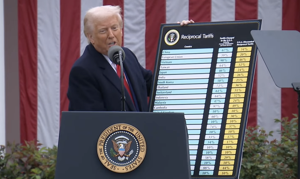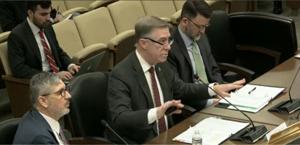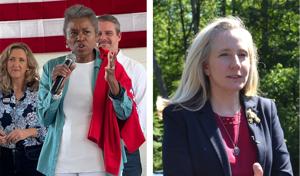(The Center Square) – The U.S. House Delivering on Government Efficiency (DOGE) subcommittee held a hearing Wednesday where leaders from National Public Radio and Public Broadcasting Service defended their work, which is partially federally funded.
The hearing comes as the Department of Government Efficiency has hacked away at various parts of the federal government and criticism of the left-leaning national coverage from PBS and NPR, as well as some of its transgenderism coverage, has drawn criticism.
DOGE Subcommittee Chair Rep. Marjorie Taylor Greene, R-Ga., argued at the hearing that abundance of news offered by the internet has made federal support for radio and television obsolete.
“I know this because I represent a rural district where farmers listen to podcasts and internet based news while they drive their tractors,” Greene said in her opening remarks. “At the same time, NPR and PBS have increasingly become radical, left-wing echo chambers for a narrow audience of mostly wealthy, white, urban liberals and progressives who generally look down on and judge rural America.
“PBS news is not just left-leaning, but it actively uses taxpayer funds to push some of the most radical left positions like featuring a drag queen on the show ‘Let’s Learn,’ a show targeted at young children ages 3 to 8 years old,” she added.
During that episode, a drag queen read a children’s’ book titled, “The hips on the drag queen go ‘swish, swish, swish.‘ “
Greene’s opening statement summed up the ongoing criticism of both NPR and PBS.
PBS’s Frontline documentary in 2015 “Growing up trans” also came up at the hearing.
Greene also pointed out PBS’ negative coverage of Elon Musk and NPR’s tracking of the race of its sources in its coverage.
“In fact, when Elon Musk put his hand over his heart, extended it, and told the American people his heart goes out to them, PBS News posted the clip, called it a fascist Nazi salute, and described how it was similar to the same ‘Heil’ used by Nazis at their victory rallies,” Greene said.
Greene pointed heavily to an editorial from Uri Berliner, a long-time senior editor at NPR, who wrote an opinion piece in 2024 criticizing NPR. Berliner said he noticed a decline in NPR’s quality and began looking into the matter.
Berliner pointed to aggressively anti-Trump coverage as well as nearly entirely Democratic leadership in the D.C. office of the organization.
“In D.C., where NPR is headquartered and many of us live, I found 87 registered Democrats working in editorial positions and zero Republicans. None.” Berliner wrote.
“So on May 3, 2021, I presented the findings at an all-hands editorial staff meeting,” he continued. “When I suggested we had a diversity problem with a score of 87 Democrats and zero Republicans, the response wasn’t hostile. It was worse. It was met with profound indifference.”
Katherine Maher, chief executive officer and president of NPR, and Paula Kerger, chief executive officer and president of PBS, testified at the hearing.
Maher said she understands the skepticism and that internally the problem is being taken seriously but said NPR should still receive funding because it has Americans’ trust.
NPR boasts 100 million monthly listeners across 1,300 radio stations.
Kerger said PBS reaches 130 million each year via television and 32 million online. She also pointed to Americans’ trust and said smaller stations would be hurt by a loss of funding.
“Public radio is an essential resource for elected officials to speak to their constituents in an era in which nearly all local newspapers have shuttered their Washington bureaus,” she argued in her written testimony.
Democrats on the committee defended NPR and PBS and touted the benefits of public broadcasting, which gives opportunities for programming that wouldn’t make it on private broadcasting. They also took the opportunity to take a range of shots at the Trump administration, from attacking Musk to the latest leak of Houthi strike plans via a Signal group chat.
“The vast majority of the $121 million annual federal appropriation allocated for radio –more than $100 million – goes directly to 386 local noncommercial radio grantees across the nation,” Maher said in her prepared testimony. “This investment enables your local station to raise an average of $7 for every one federal dollar. In places that serve more rural, distributed or lower income communities, that dollar goes even further – public radio is very often the only news service in places where market economics does not support the expense of local news. The entire federal investment in public media averages about $1.60 per person per year.”
PBS said the group and its affiliates receive about $500 million a year from Congress.
“Over seventy percent of CPB’s federal appropriation dollars go directly to support local TV and radio stations,” Kerger said. “Member stations leverage each $1 of federal funding to raise nearly $7 from other sources – a tremendous return on the vital taxpayer investment. The vast majority of public media’s funding comes from individual donors who make contributions directly to their own local member station.”

















































